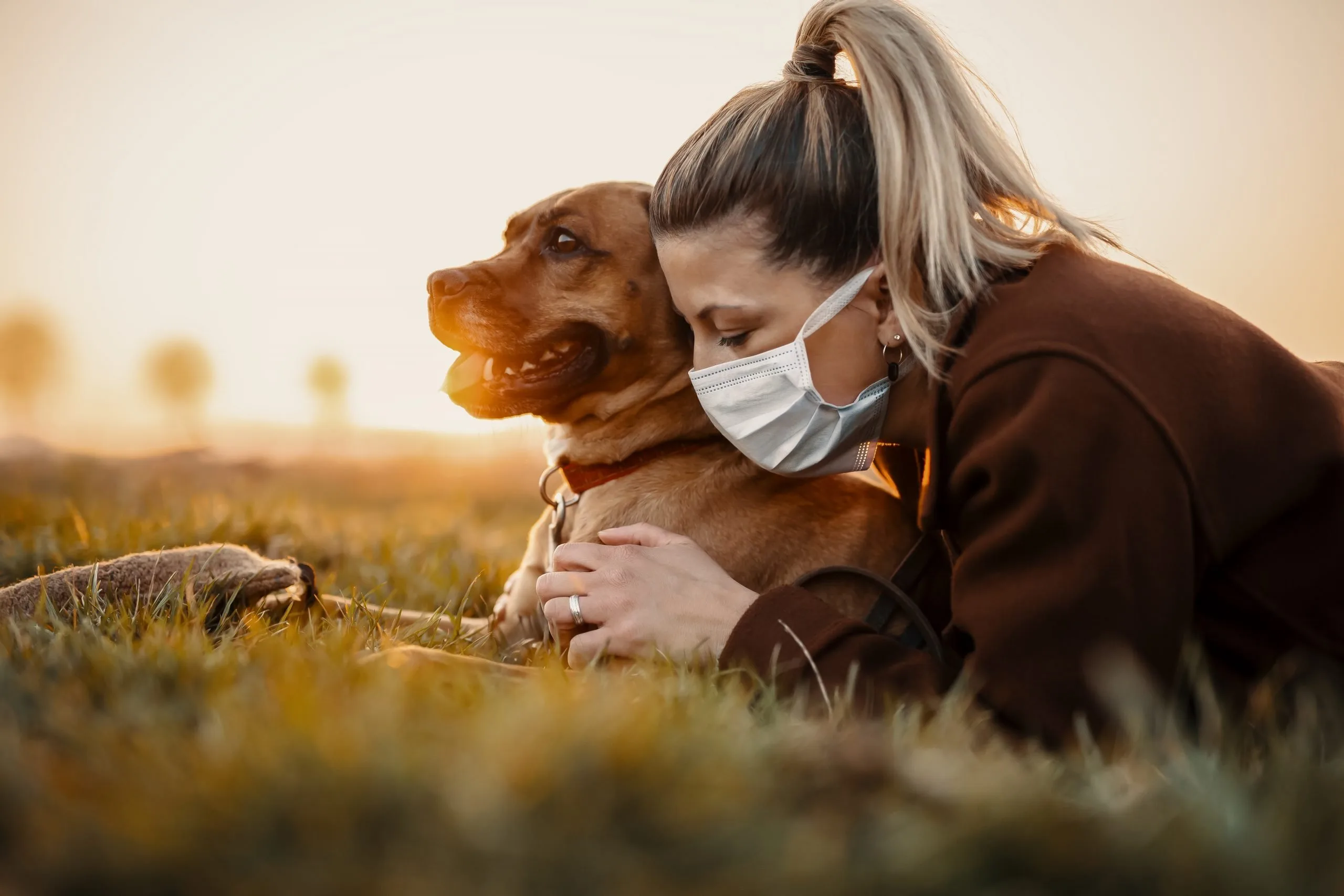Why are dogs man’s best friend? What is it about these four-legged creatures that seem to improve our health? We all know that having a pet can do wonders for your health, but do you know that research suggests that dogs may be able to sniff out health issues such as cancer and even COVID (1)?
The Kitalys Institute hosted a webinar called The Dog Aging Project: extending the lives of “man’s best friend” and supporting the quest to increase human healthspan.

LightField Studios/Shutterstock
The most recent webinar involved Alexander “Zan” Fleming MD, founder and president of the Kitaly’s Institute, University of Washington geroscientist, Matt Kaeberlein, Ph.D.and Dr. Ron Kohanski, Director of the Division of Aging Biology at the National Institute on Aging.
The experts discussed The Dog Aging Project and its efforts to understand the biology of aging in companion dogs, as well as how this may help humans.
The Dog Aging Project
The idea here is not so much to make people or dogs live longer; the idea is really to push the diseases of aging back as far as possible to maximize the period of life that is spent in good health, free from chronic disease and disability.
Dr. Matt Kaeberlin’s focus is on pharmacological interventions that similarly slow aging, increase lifespan, improve healthspan, and in some cases seem to reverse aspects of aging.
One particular drug that seems to target the known genetic pathways that regulate aging is rapamycin.
“Rapamycin is a drug that we are taking forward to test whether it can slow aging in pet dogs.” According to Dr. Kaeberlin, rapamycin was chosen because, to date, it is the most effective and reproducible longevity drug in laboratory animals. In fact, many labs now over several years have shown that rapamycin consistently slows aging and increases lifespan in mice.
As for what is the Dog Aging Project?
“There are really two components to The Dog Aging Project … The first one is a Longitudinal Study of Aging, and this is completely observational. The goal here is really just to understand what are the most important genetic and environmental factors that influence healthy aging in pet dogs.” explains Dr. Kaeberlin,
“The second goal of The Dog Aging Project is to do something about aging. Can we start to take some of these interventions that clearly affect the aging process in laboratory animals and determine whether they affect the aging process in pet dogs? The first intervention trial that we’re getting underway is to test whether rapamycin can slow aging in pet dogs”

Photo by Mia Anderson on Unsplash
Why pet dogs?
“We know they age very much as people do. As dogs get older, they get most of the same age-related diseases that we do. And what I mean by that is that the risk of developing those diseases goes up as the dogs get older.” says Dr. Kaeberlin, who adds that it’s actually feasible to study aging in dogs.
Dr. Ron Kohanski echoes these sentiments. He shares that one of the things that they ask the geroscience interest group is: what are the appropriate animals for translational neuroscience? And one of the first answers is dogs.
“The dogs share our environment, they share a lot of our emotional content….We know a lot about human physiology from dogs. We know about insulin pacemakers which were worked out in dogs, organ transplant in dogs, hematopoietic STEM cell transplantation…So dogs are critical in terms of their utility in medical research, as well as the comfort they bring to us as companion animals”
WATCH THE VIDEO
The video interview with these panelists contains the full dialogue of this interview, and you can watch it below.
Who are the experts?
Matt Kaeberlein, PhD

Matt Kaeberlein. PhD
Dr. Matt Kaeberlein is a Professor of Laboratory Medicine and Pathology at the University of Washington (UW) School of Medicine, with Adjunct appointments in Genome Sciences and Oral Health Sciences. Dr. Kaeberlein’s research interests are focused on biological mechanisms of aging. This is in order to facilitate translational interventions that promote healthspan and improve quality of life.
He has published more than 200 scientific papers. He has also been recognized by several prestigious awards including young investigator awards from the Ellison Medical Foundation and the Alzheimer’s Association, the Vincent Cristofalo Rising Start in Aging Research Award, the Murdock Trust Award, the NIA Nathan W. Shock Award, and the Robert W. Kleemeier Award for outstanding research in the field of gerontology from the Gerontological Society of America (GSA).
Dr. Kaeberlein has been awarded Fellow status with the American Association for the Advancement of Science (AAAS), the American Aging Association (AGE), and the GSA. Dr. Kaeberlein is currently the CEO and Chair of AGE, Past-President of AGE, has served on the Board of Directors for the Federation of American Societies for Experimental Biology (FASEB) and AGE, and has served as Biological Sciences Chair for GSA. Dr. Kaeberlein is the founding Director of the UW Healthy Aging and Longevity Research Institute, the Director of the NIH Nathan Shock Center for Excellence in the Basic Biology of Aging at UW, Director of the Biological Mechanisms of Healthy Aging Training Program, and founder and co-director of the Dog Aging Project.
Alexander Fleming, MD
Dr. Alexander Fleming is the President of The Kitalys Institute. He is also the founder and Executive Chairman of Kinexum, a life science advisory firm.

Dr. Alexander Fleming
Dr. Fleming led landmark FDA approvals. This included metformin, the first statin, insulin analog, PPAR-agonist, and growth hormone for non-GH deficiency indications. Dr. Fleming coined the term “Metabesity.” The term refers to the constellation of cancer, heart and neurologic diseases, diabetes, and the aging process itself, all of which share common metabolic root causes and therefore might be targeted collectively with a single intervention. He co-founded the first Metabesity conference in London in October 2017. This was followed by the second in Washington, D.C., in 2019, and the third held virtually in 2020.



![women [longevity live]](https://longevitylive.com/wp-content/uploads/2020/01/photo-of-women-walking-down-the-street-1116984-100x100.jpg)










